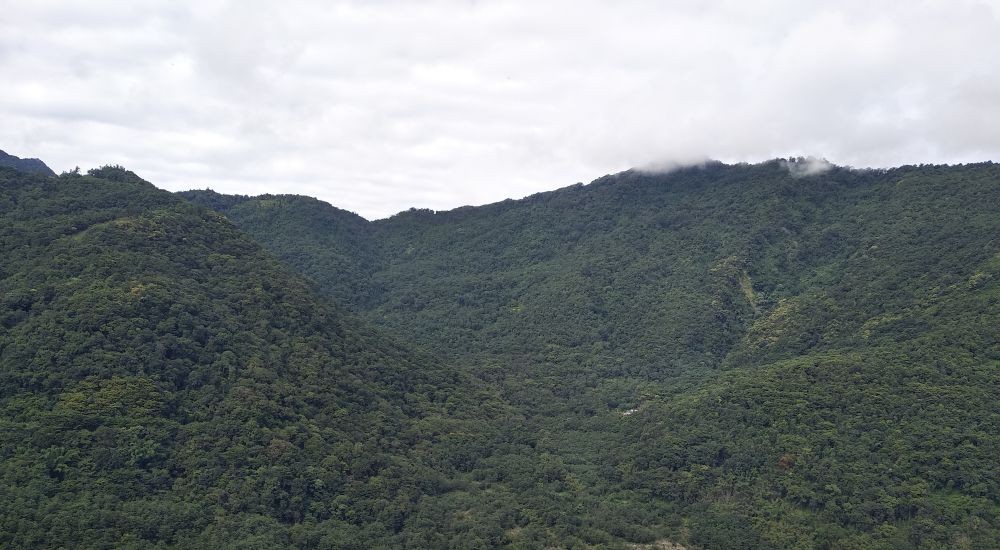“Many villages have declared an increase in the area of community-owned forests.” The forested hills of Khonoma. (Morung Photo)

Vishü Rita Krocha
Kohima | April 21
“Minimalisation will be a great investment for our future—using what we have, even food if we can,” says Agnes Tepa, an environmental enthusiast on the eve of Earth Day, commemorated every year on April 22.
This year, the theme for Earth Day is ‘Invest in our planet,’ for which, Tepa points to “minimalisation” as the sustainable path towards a green future. “Even in planting trees, we now see a lot of interest in ornamental plants, which is good but we must also enhance the local species because in doing so, we are preserving our biodiversity. Otherwise, animals, birds and the entire ecosystem are disturbed,” she asserts.
Investment, she points out, can be in trying to reinforce the resources we already have. A case in point is the "dryer machine," she says, adding, "we have a natural source of drying clothes, but people go on to buy dryers…we have the space and sources of drying clothes, unlike metropolitan cities."
She feels that a lot can be minimised even in the procurement of equipments and gadgets. Another primary concern is "waste disposal," she says. "We may be trying to segregate waste at home but at the end of the day, how it is eventually disposed will decide whether it will endanger our environment or not," she adds.
In the meantime, she points out that it is not just the waste people produce but even imported second-hand clothes. “Many of these second-hand clothes are useless and either unknowingly or unconsciously, we are using our land as a disposal site,” she adds.
“Nagaland should be an exemplary state. Instead, Sikkim is doing far better than us and in a way, that also shows the state of our Christianity,” she states.
Tree plantation drives increasing every year
Over the years, the number of tree saplings procured from the Forest Nursery under Kohima Division by civil society organisations, including student bodies and village councils, has crossed 1 lakh.
Speaking to The Morung Express, Rajkumar M, IFS, Divisional Forest Officer Kohima, said the demand for saplings for plantation drives has increased annually. He informed that they generally start coming by March and throughout April, May and June while impressing the need to follow up on these activities.
“We don’t know how many trees have survived and since it’s not possible for us to keep track, maybe the organisation(s) could send us photos so that we know how much green coverage our saplings have helped achieved,” he articulated.
Referring to Nagaland as a "very unique land" where the majority of forest cover is community-owned, he observed that many villages have declared an increase in the area of community-owned forests.
While these initiatives are commendable, he nevertheless said, “We have to do a lot more. We are doing well in terms of preserving community-owned forests cover but a lot still needs to be done on the aspect of wildlife.”
He meanwhile remarked that "knowledge about plantation is quite high here. Almost everyone knows about the forest.”
Environmental concerns are myriad even as he said it is not just about planting trees. "For instance, if you are throwing plastic, that will also affect the environment. There are multifaceted areas… we should remember every day as Earth Day," he declared.






